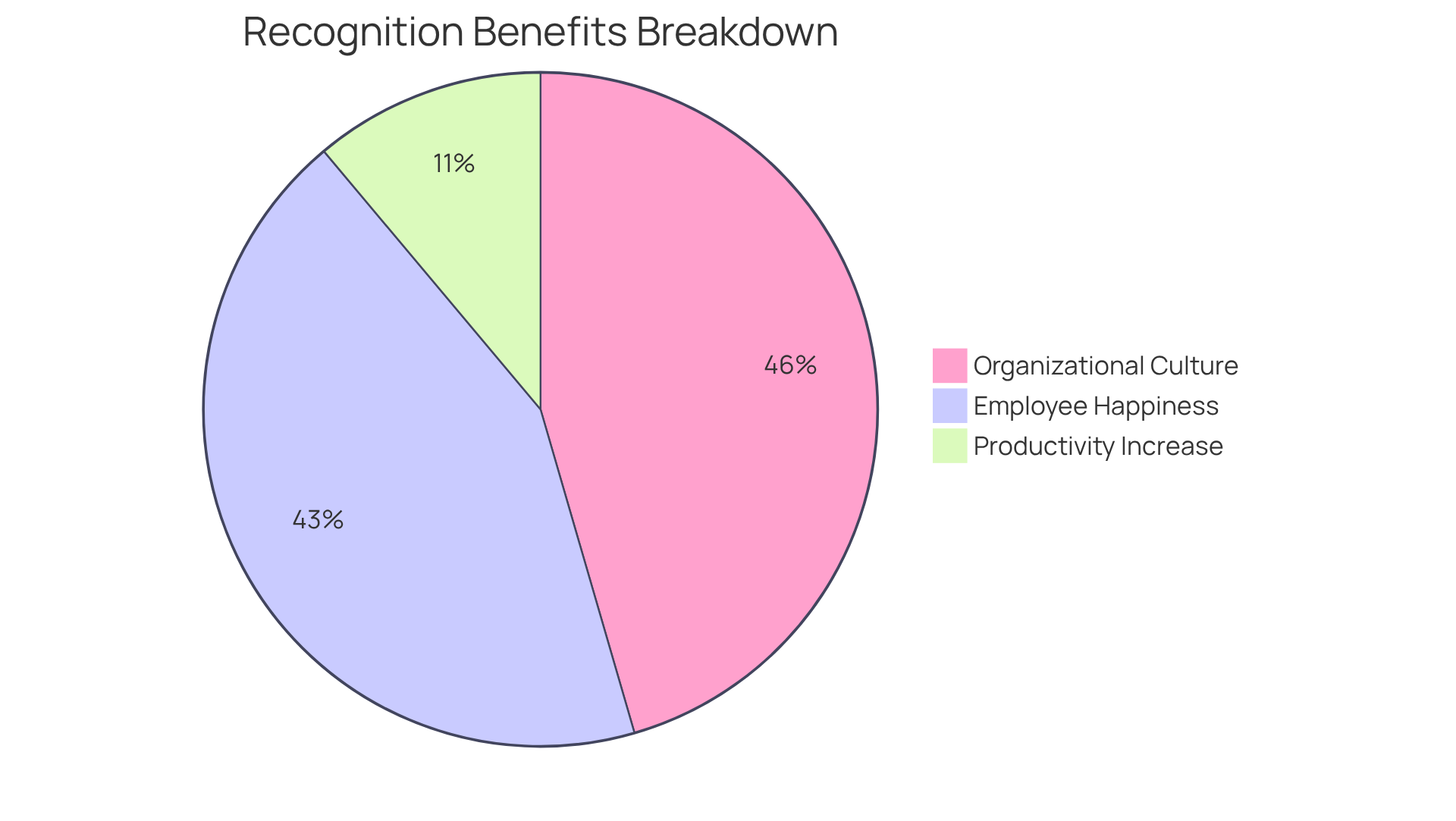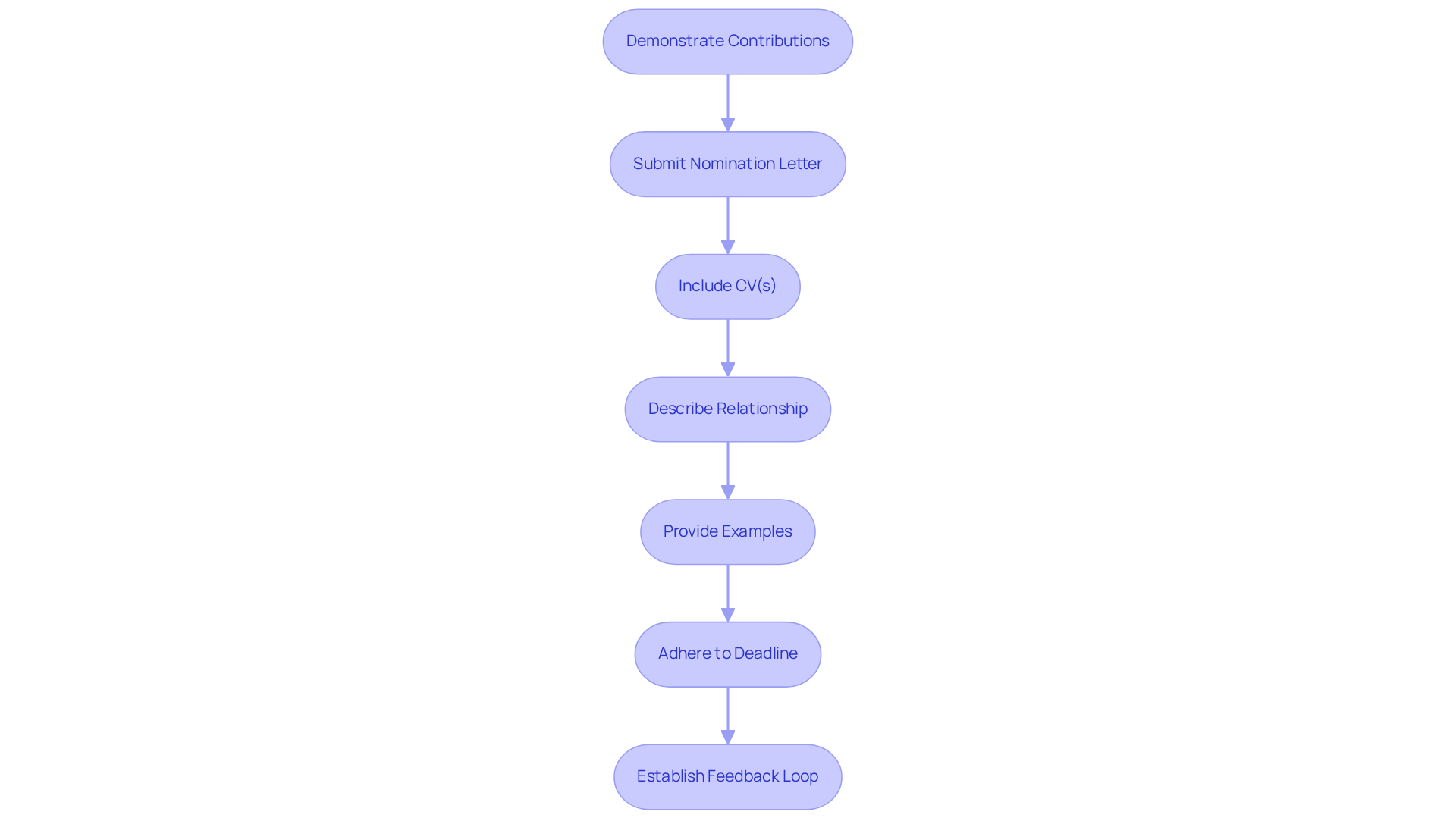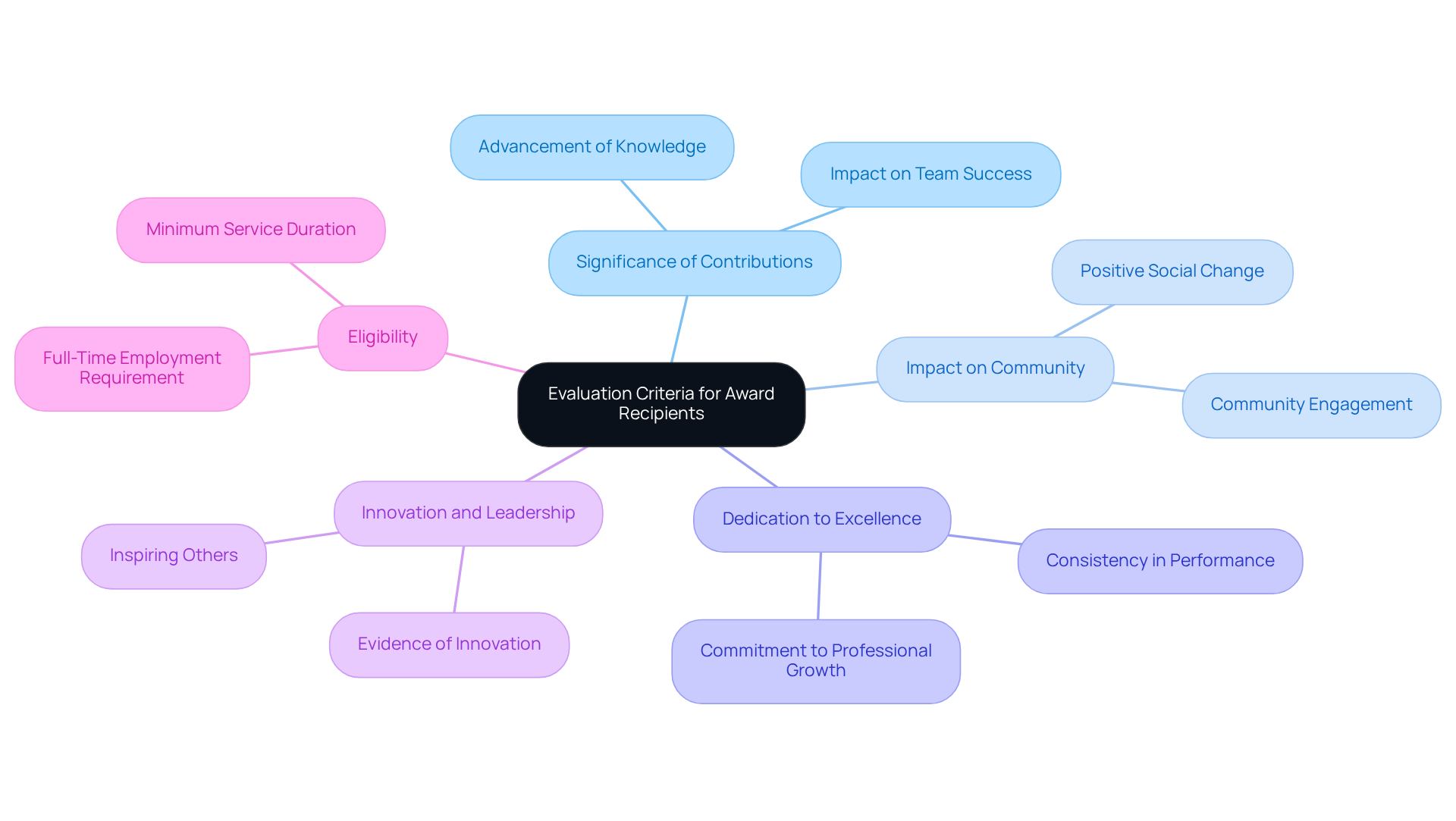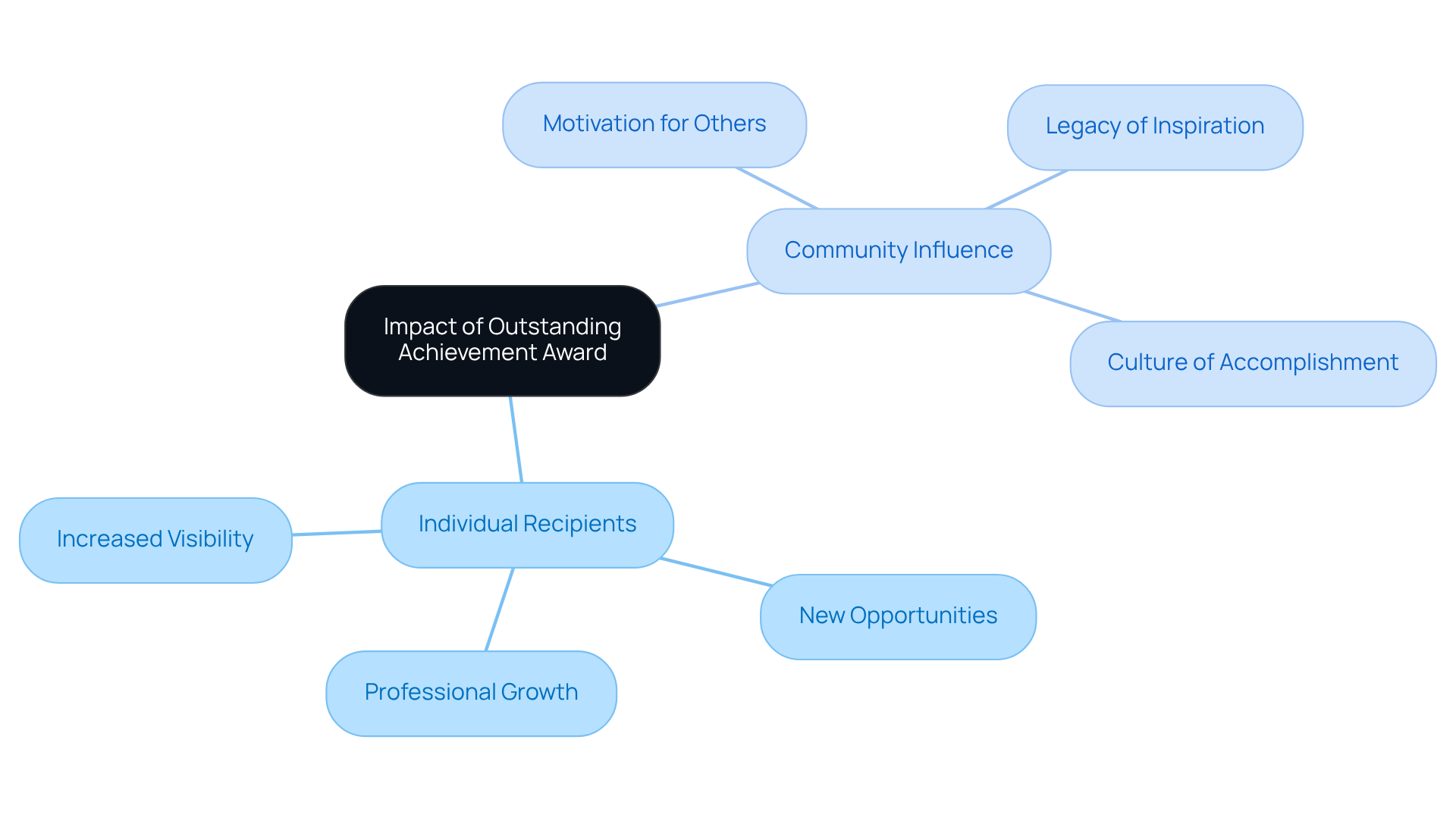Overview
The Outstanding Achievement Award is a heartfelt recognition of individuals who have made significant contributions, nurturing a culture of excellence and inspiring others within their community.
It’s important to recognize that such acknowledgment not only boosts morale but also drives productivity and fosters collaboration.
Many individuals find that this kind of recognition uplifts their spirits, ultimately benefiting both themselves and their organizations as a whole.
By celebrating achievements, we create an environment where everyone feels valued and motivated to strive for greatness.
Introduction
The Outstanding Achievement Award shines as a symbol of recognition for individuals whose remarkable contributions have made a meaningful difference in their fields. This accolade not only honors personal excellence but also nurtures a culture of motivation and innovation within our communities and organizations.
But have you ever wondered what truly defines the significance of this award? By understanding its purpose and the criteria for nomination, we can see how such recognition shapes careers and fosters collective progress, inspiring others to reach new heights.
It’s important to recognize that this award serves as a guiding light, encouraging all of us to strive for excellence together.
Explore the Purpose and Significance of the Outstanding Achievement Award
The Outstanding Achievement Award serves as a meaningful recognition for individuals who have made significant contributions in their fields. It honors those whose work not only excels but also inspires others. By acknowledging these outstanding achievements, the Outstanding Achievement Award fosters a culture of excellence, encouraging individuals to reach for higher standards in their professional journeys.
It’s important to recognize that this acknowledgment can lead to increased motivation, enhanced morale, and a sense of belonging within the community. Ultimately, this drives collective progress and innovation. Research shows that organizations that emphasize employee appreciation experience a 21% rise in productivity. This underscores the profound impact of such accolades on the workplace.
Furthermore, many HR professionals believe that recognition contributes to increased employee happiness, with 82% affirming this sentiment. Additionally, 86% note that it improves organizational culture. As the group embraces the Outstanding Achievement Award, it fosters an environment where individual accomplishments are celebrated, and collective success is achieved. This nurturing atmosphere not only uplifts individuals but also strengthens the community as a whole.
Understand Eligibility Criteria and Nomination Process
Candidates must demonstrate remarkable contributions to their field, whether in academia, community service, or professional practice, to qualify for the outstanding achievement award. It’s important to recognize that the nomination process involves submitting a detailed nomination letter that outlines the individual’s achievements, impact, and qualifications.
Additionally, nominators should include the CV(s) of the candidate(s) in the nomination packet. A description of the relationship between the nominator and candidate(s) can provide valuable context for the nomination. Many nominators find that including specific examples and evidence of the candidate’s contributions strengthens the application.
Remember, adhering to submission deadlines is crucial. The upcoming deadline is midnight on Monday, September 15, 2025. Following any specific guidelines set forth by the awarding body will help ensure a successful nomination.
Establishing a feedback loop is also essential for refining the awards program. This approach allows for continuous improvement based on real-time data. Ultimately, this meticulous process not only increases the chances of receiving an outstanding achievement award but also underscores the individual’s significant impact in their respective area. Your efforts in this nomination can truly make a difference.
Examine the Evaluation Criteria for Award Recipients
The evaluation criteria for the outstanding achievement award include several key factors that truly matter. It’s essential to consider the significance of an individual’s contributions, the impact of their work on the community or field, and their unwavering dedication to excellence. Review committees place a high value on evidence of innovation and leadership, looking closely at how nominees inspire others and uphold professional integrity. Furthermore, contributions that advance knowledge or practice within their area of expertise hold great importance.
It’s noteworthy that nine out of ten firms monitoring their wellness expenditures see a positive ROI. This highlights the broader influence of recognition and incentives on organizational effectiveness. As Kyla Dewar wisely states, ‘The most important criteria to take into consideration when giving an employee an award will depend upon your company culture and values.’ This reinforces the idea that evaluation criteria should resonate with the values of the organization.
Nominees must also fulfill specific eligibility criteria, such as being full-time staff employed for at least three years by the nomination deadline. By understanding these criteria, nominees can effectively tailor their applications to emphasize the most relevant aspects of their accomplishments, significantly enhancing their chances of winning an outstanding achievement award.
As Albert Einstein aptly noted, ‘The measure of intelligence is the ability to change.’ This underscores the importance of adaptability and innovation in the evaluation process, reminding us that growth often comes from embracing change.
Assess the Impact of the Outstanding Achievement Award on Recipients and Community
The outstanding achievement award not only acknowledges individual excellence but also significantly influences the community. It’s important to recognize that recipients often experience enhanced visibility and credibility, which can lead to new opportunities for collaboration, funding, and professional advancement. Research shows that organizations with reward programs experience 31% lower voluntary turnover than those without, underscoring the significance of such accolades in fostering professional growth. Furthermore, this acknowledgment serves as motivation for others, urging them to pursue their objectives and make a positive impact in their areas.
As Natalie Wickham states, “Employee appreciation is a fundamental human need,” highlighting the intrinsic value of recognition. This recognition fosters a sense of pride among residents, enhancing a culture of accomplishment and inspiring others to strive for excellence. Many find that case studies demonstrate recipients frequently gain visibility that results in new collaborations and initiatives, benefiting society as a whole.
Ultimately, the outstanding achievement award creates a legacy of inspiration that extends beyond just the individual recipient, nurturing a community committed to excellence and collaboration.
Conclusion
The Outstanding Achievement Award is a vital recognition of excellence, celebrating individuals who have made remarkable contributions across various fields. This prestigious accolade honors individual achievements and cultivates a culture that inspires others to strive for excellence, ultimately enhancing collective progress within communities and organizations.
It’s important to recognize that the award’s significance extends beyond recognition. Key insights highlight its role in boosting motivation, morale, and organizational culture. The eligibility criteria and nomination process are essential for ensuring that deserving candidates are acknowledged. Moreover, the evaluation criteria emphasize innovation, leadership, and community impact. These factors foster an environment where accomplishments are celebrated, inspiring others to pursue their goals.
In a world where recognition plays a crucial role in professional development and community building, the Outstanding Achievement Award serves as a catalyst for positive change. Many individuals find that embracing this award leads to personal growth and enhanced collaboration within the community. Therefore, it is imperative to actively participate in recognizing and nominating deserving candidates, contributing to a legacy of excellence that uplifts everyone involved.
Frequently Asked Questions
What is the Outstanding Achievement Award?
The Outstanding Achievement Award is a recognition given to individuals who have made significant contributions in their fields, honoring those whose work excels and inspires others.
What is the purpose of the Outstanding Achievement Award?
The purpose of the Outstanding Achievement Award is to foster a culture of excellence by acknowledging outstanding achievements, encouraging individuals to strive for higher standards in their professional journeys.
How does the Outstanding Achievement Award impact motivation and morale?
The acknowledgment from the Outstanding Achievement Award can lead to increased motivation, enhanced morale, and a sense of belonging within the community, driving collective progress and innovation.
What does research say about the effects of employee recognition?
Research indicates that organizations that emphasize employee appreciation experience a 21% rise in productivity, highlighting the significant impact of such accolades on the workplace.
How does recognition affect employee happiness and organizational culture?
Many HR professionals believe that recognition contributes to increased employee happiness, with 82% affirming this belief, and 86% noting that it improves organizational culture.
What kind of environment does the Outstanding Achievement Award promote?
The Outstanding Achievement Award fosters an environment where individual accomplishments are celebrated, leading to collective success and strengthening the community as a whole.



